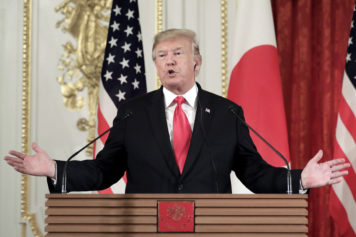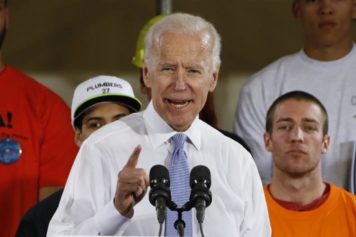
“That’s not something anyone should take lightly,” says Professor Robert Proctor, a criminal defense attorney and clinical instructor in Harvard Law School’s Criminal Justice Institute. Proctor believes our current court system relies far too much on the practice of plea bargaining, a negotiated agreement between a prosecutor and defendant where the latter agrees to plead guilty in exchange for reduced consequences. Personally, says the Morehouse alum, “I consider pleas to be the last resort. I don’t do many, but I do have clients where it is in their best interest to do so since winning is relative in the criminal justice system.”
Even so, he adds, that statistic “breaks my heart.”
Unfortunately, Proctor’s sincerity has little place in a contemporary judicial system where courts are commonly overrun with cases. As an indicator, Federal Court Management Statistics reveal that between September 2015 and 2016 the nation’s district courts combined to field a total of 387,687 case filings. In such a demanding environment, plea bargains are the primary mechanism for avoiding crippling backlogs and costly delays.
Given this level of legal traffic, a certain reliance on the plea bargain is both justified and expected. But the question, for some, is not if plea bargains should be used but rather how often and on who?
“Black men are seven times more likely than white people to be stopped by police, to be arrested, to be denied bail and to be charged with a serious crime,” says Sara Totonchi, executive director of the Southern Center for Human Rights, a nonprofit law firm in Atlanta. “So, it results in a lot more interactions with the criminal justice system, and that means there are a lot more people of color, particularly those of low income, who are forced into the very difficult decision on whether or not to take a plea.”
“You’re basically creating a functioning wheel based on pleas,” says Edrick Browne, an inmate advocate, filmmaker and producer of the prison re-entry docu-series, “After the Bid.” After pointing to unscrupulous profit motives for privatized prisons and related services, Browne spells out how an inherently biased system that “constantly has to be fed” has little regard for innocence or guilt.
“There are people that didn’t commit the crime, but the lawyers pull you into that room and tell you, ‘You’re looking at 17 years, but we’ll give you three,” Browne explains. Although you know you’re innocent, he continues, “they put the fear tactics on you” and tell you, “if you waste the taxpayers’ money and you blow trial, you’re gonna do all 17 of those years. So, it’s not about if you did it or not, it’s about if you’re willing to risk doing 17 years in jail. And that’s a huge disparity between 17 and 3.”
“There is this pressure to take a plea,” agrees Totonchi, noting prosecutors will commonly offer it for a limited time before retracting. “If you can get something less than that mandatory minimum, which means you’d have to serve every single day of your sentence without the chance of parole, the plea is often a better option.”
Historically, the Sixth Amendment was adopted to provide a better option by guaranteeing “in all criminal prosecutions, the accused shall enjoy the right to a speedy and public trial by an impartial jury.” Accordingly, prior to the Civil War, the plea bargain was rarely used as most defendants either went to trial or confessed their guilt. This changed in the postbellum Reconstruction era as a number of factors conspired to expand the reach of the justice system both legitimately and illegitimately, including the subjective criminalization of the formerly enslaved and a steadily increasing influx of immigrants. As crime rates rose, plea bargains presented an effective method of moving cases through the system without bogging it with timely or costly trials.
By the mid-20th century, plea bargains were being employed in more than 80 percent of all criminal cases as the influence of both judges and defense counsels declined. This proportion would increase under the no-nonsense crime policies of the 1970s and ’80s, where harsh mandatory minimums were imposed to combat rising crime rates, particularly for drug offenses. Prosecutorial discretion reigned as mandatory sentencing guidelines and “tough on crime” policies gave prosecutors the capacity to either charge defendants with offenses that carry mandatory penalties or get them to agree to a plea agreement. This approach reached its zenith in the mid-1990s with the adoption of draconian “three strikes” laws at both the federal and state level where defendants with two prior convictions could be sentenced to life in prison, even if their third crime was relatively minor. Once applied, there’s little a judge could do since prosecutorial discretion was backed by the legislature, and defendants —innocent or guilty, commonly Black and poor — often had no choice but to cop a plea. As a result of these harsh policies, guidelines and minimums, by the year 2010, 97 percent of all federal defendants were accepting pleas and never getting their day in court.
“Another stat that should go side by side with that plea bargain stat is the fact that 80 percent of people accused of crimes cannot afford a lawyer,” reports Totonchi, explaining they are represented by court-appointed public defenders commonly “saddled with extremely high caseloads” and lacking the financial and investigative resources to “take a case all the way to trial. So, just by sheer volume, there is an instinct to resolve cases with plea bargains from public defenders. Right there, we see the impact of poverty on a resulting plea.”
Alongside factors of poverty and race, Proctor feels defense attorneys often fold into a system slanted toward the power of the prosecutor. “I see far too many defense attorneys not really doing the job of a lawyer,” he says, noting they can better represent clients and challenge the process by filing substantive motions to suppress or dismiss. “I call it throwing a monkey wrench into this prosecutorial machine because a good lawyer slows down this process.”
Given there is a certain familiarity and status quo between those who work in the courts —especially at the local level where the same judges and lawyers frequently work together and pressure defense attorneys to conform to the plea process early and often — Proctor contends this often compromises the necessary adversarial relationship for justice to effectively be carried out. “The rule of thumb for a good defense lawyer is that you usually don’t tender a plea until trial. A lot of lawyers are simply afraid of going to trial because they don’t try cases much and really haven’t been taught how. And if you’re not trying cases, you’re not gaining the experience to become better and more confident at it and, therefore, you’re adding to those plea numbers.”
Totonchi brings it back to the factors further coloring those numbers by contending our system “should look at individual cases and make assessments or judgments based on those factors.” Instead, she says, “What we see are incredible generalizations about people” based on race, income and other aspects “that take us really far from where we should be as a society seeking justice.
“We need to take a hard look at the way this system works and make some major changes if we want to fulfill the promise of equal justice for all,” Totonchi adds.
Proctor takes it a step further. “I think it is part of an overarching architectural design to continue the oppression and disenfranchisement of people of color in America because, if you have a criminal record, you lose all of your important rights,” he says.
He doesn’t stop there, reminding us the implications of a criminal justice system particularly slanted against African-Americans and the poor, and motored by plea bargains, go even beyond our basic rights as citizens.
“Forget about voting, you can’t even get a job,” Proctor laments. “And without a job, what are you going to do?”

